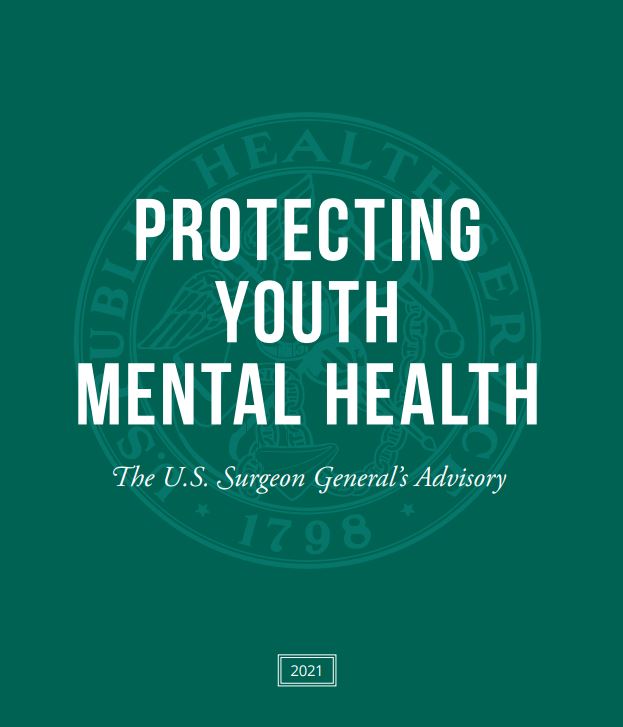Statement from CHADD Regarding ADHD-Related Claims Published in the Make America Healthy Again Report
As the nation’s leading organization dedicated to children and adults with attention deficit hyperactivity disorder (ADHD), CHADD believes it is essential to respond when misleading or inaccurate information is released that may have an impact on public understanding and access to evidence-based ADHD care. The recently released Make America Healthy Again (MAHA) report—issued by the MAHA…
Read MoreStatement from CHADD Regarding the Executive Order Establishing the President’s Make America Healthy Again Commission
In service to the Attention Deficit Hyperactivity Disorder (ADHD) community, CHADD has thoroughly reviewed the President’s Executive Order establishing the Make America Healthy Again Commission. We were encouraged by planned efforts to improve public health through better nutrition, sleep, and exercise. Such improvements are valuable and benefit all individuals, including those with ADHD. These factors…
Read MoreWebinar: The Effects of Federal Healthcare and Education Policies
ADHD Policy Briefing: Analysis and Impact of Federal Healthcare and Education Policies Featuring Matthew J. Gormley, PhD; Mary V. Solanto, PhD; Pheona Walker; and Max Wiznitzer, MD Recorded April 8, 2025 Download Slides Several proposed federal policies have the potential to affect ADHD diagnosis, treatment, and educational support for individuals and families. Experts in ADHD…
Read MoreContact Your Representatives
As we work to protect access to ADHD treatment, accurate information, and the support so many of us rely on, your advocacy matters. ADHD affects about eleven percent of children and six percent of adults, equaling an estimated 22 million people in the United States. ADHD is one of the most-studied health conditions in the…
Read MoreLeading the Way: The First Guidelines for the Clinical Diagnosis and Treatment of Adult ADHD
Leading the Way The First Guidelines for the Clinical Diagnosis and Treatment of Adult ADHD in the United States Healthcare providers in the United States are not taught how to diagnose and treat ADHD in adults. The absence of clinical practice guidelines for adults has created a significant gap in mental healthcare across the country.…
Read MoreContact Your Senators and Representatives to Request an Increase in Funding for ADHD for the National Center on Birth Defects and Developmental Disabilities
As October marks National ADHD Awareness Month, we stand at a critical juncture to address the public health concern posed by attention-deficit/hyperactivity disorder (ADHD). We urge you to contact your senators to ask them to support the at least 22.6 million individuals in the United States with ADHD, along with their families, by increasing funding…
Read MoreThe Importance of Adult ADHD Guidelines
Featuring Dr. Peter Jensen, MD. Dr. Peter Jensen, founder and Board Chair of the REACH Institute, is the director of a coalition of national organizations that are developing adult ADHD diagnosis and treatment guidelines for use in the United States, a joint effort of CHADD and APSARD.
Read MoreWhat Is ADHD? How It Impacts Children and Adults
Featuring Max Wiznitzer, MD, Co-chair of CHADD’s Professional Advisory Board Download PDF Learn more about ADHD before the lunch and learn: About ADHD – Overview The Science of ADHD Diagnosing ADHD Treatment of ADHD Frequently Asked Questions Have questions? Email the public policy co-chairs at PublicPolicyLiaison@CHADD.org.
Read MoreYou Can Help Protect the Rights of Students with ADHD
Urgent action is needed to encourage the US Department of Education to release updated rules on Section 504 of the Rehabilitation Act of 1973, which provides educational accommodations for children who have ADHD. The process for this release has currently slowed due to a complication at the US Department of Justice, and time is running…
Read MoreTips for Handling the Medication Shortage
ADHD Medication Shortages: What to Know and Do By Andrew Adesman, MD, and Anna Krevskaya, MD Attention, October 2023 In recent years, many new stimulant medications have been approved by the US Food and Drug Administration (FDA) for treatment of ADHD. These new formulations vary in their duration of benefit, and many offer new ways…
Read MoreA Way You Can Address the Medication Shortage
We have heard the frustrations many members of the ADHD community are experiencing when they go to refill their ADHD medications, the disappointment and worry when the pharmacy is unable to fill a prescription because of the ongoing shortage. CHADD’s public policy committee is pursuing all appropriate channels to bring this to the attention of…
Read MoreProtecting Youth Mental Health: The US Surgeon General’s Advisory
The challenges today’s generation of young people face are unprecedented and uniquely hard to navigate. And the effect these challenges have had on their mental health is devastating. Recent national surveys of young people have shown alarming increases in the prevalence of certain mental health challenges. We know that mental health is shaped by many…
Read More



